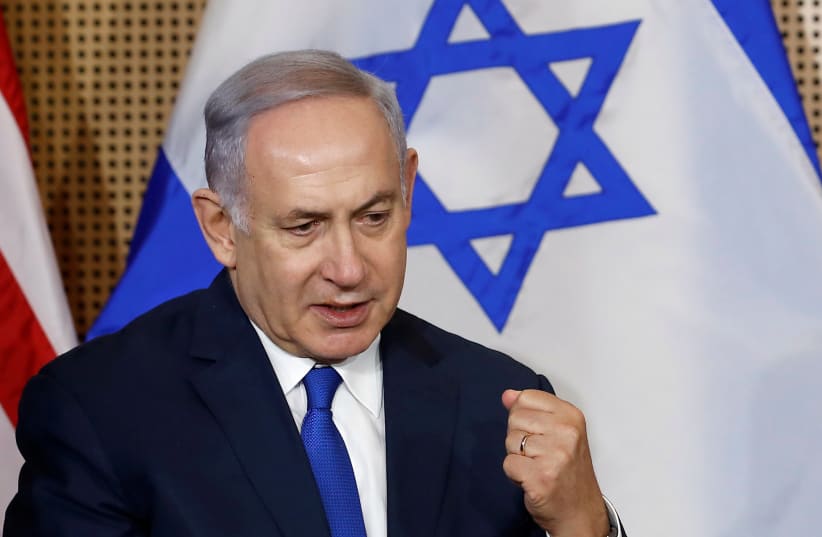The rabbis included Rabbi Elazar Muskin of Young Israel Century City, California, who currently serves as the president of the Rabbinical Council of America, as well as Rabbi Heshie Billet of Young Israel Woodmere, a former president of the RCA.
Young Israel was one of the only mainstream Jewish organizations in the US to publicly back Netanyahu over his actions when it issued a statement last week defending Prime Minister Benjamin Netanyahu’s strenuous efforts to ensure that Bayit Yehudit merged with the extremist Otzma Yehudit party on a joint electoral list.In their press statement released on Friday, the Young Israel rabbis and lay leaders noted that the National Council of Young Israel frequently issues statements on political issues, but said that they were formulated without the input of rabbis and lay leaders from individual Young Israel synagogues, and that recent statements, in particular the one regarding Otzma Yehudit, did not represent the different Young Israel communities.“In recognition of the current highly divisive political environment in the United States, Israel, and beyond, we, the undersigned rabbinic and lay leadership of individual Young Israel synagogue communities, call upon NCYI leadership to immediately cease making all political pronouncements,” wrote the rabbis.They noted in particular that given the lack of input from individual that “Such statements are currently formulated without any input or authorization from the rabbinic and lay leadership of individual Young Israel synagogue communities,” and said therefore that” all past statements issued by NCYI leadership about political matters, including but not limited to its recent statement about Otzmah Yehudit and the Israeli political process, do not represent the diverse views within our individual synagogue communities, or the gamut of views across the diverse synagogue communities under the NCYI umbrella.”The rabbis also called on the NCYI leadership to develop a process for obtaining input from individual Young Israel communities to ensure that future statements on political issues will reflect the views of the broader member communities.The original statement issued by president of the National Council of Young Israel Farley Weiss observed that Netanyahu “acted to get right-wing parties to merge in order to meet the threshold necessary to secure a victory in the election,” and that “We understand what Prime Minister Netanyahu did, and he did it to have ministers of the national religious and national union parties in his coalition.”Both Bayit Yehudi and Otzma Yehudit were individually polling under the electoral threshold before their merger and could have seen tens of thousands of right-wing votes thrown away if neither managed to win the 3.25% of the vote needed to enter the Knesset.Netanyahu lobbied hard for the parties to agree to merge in order to preserve those votes and increase the likelihood that the right-wing bloc of parties forms the next government, with Netanyahu and Likud at its head.His efforts were strongly criticized by numerous Jewish American organizations, including the AJC, AIPAC, ADL, and the Reform and Conservative movements.Holocaust historian Deborah Lipstadt resigned her membership of the Young Israel of Toco Hills in Atlanta synagogue following the statement from the NCYI, protesting against the extremist nature of Otzma Yehudit and its policies.“I cannot be associated with an organization that gives such racism, celebration of violence, and immoral policies a “heksher.” [kosher stamp],” Lipstadt she wrote to her rabbi, who himself had strongly criticized the NCYI statement.“Having just written a book that calls for people to speak out and take action when they see antisemitism or prejudice of any kind, it would be duplicitous of me to remain a member of an entity that has the name “Young Israel.”
Young Israel communities call on organization to halt political statements
Call is a rebuke to central leadership which backed PM Netanyahu over efforts to bring extremist Otzma Yehudit party into the Knesset.
